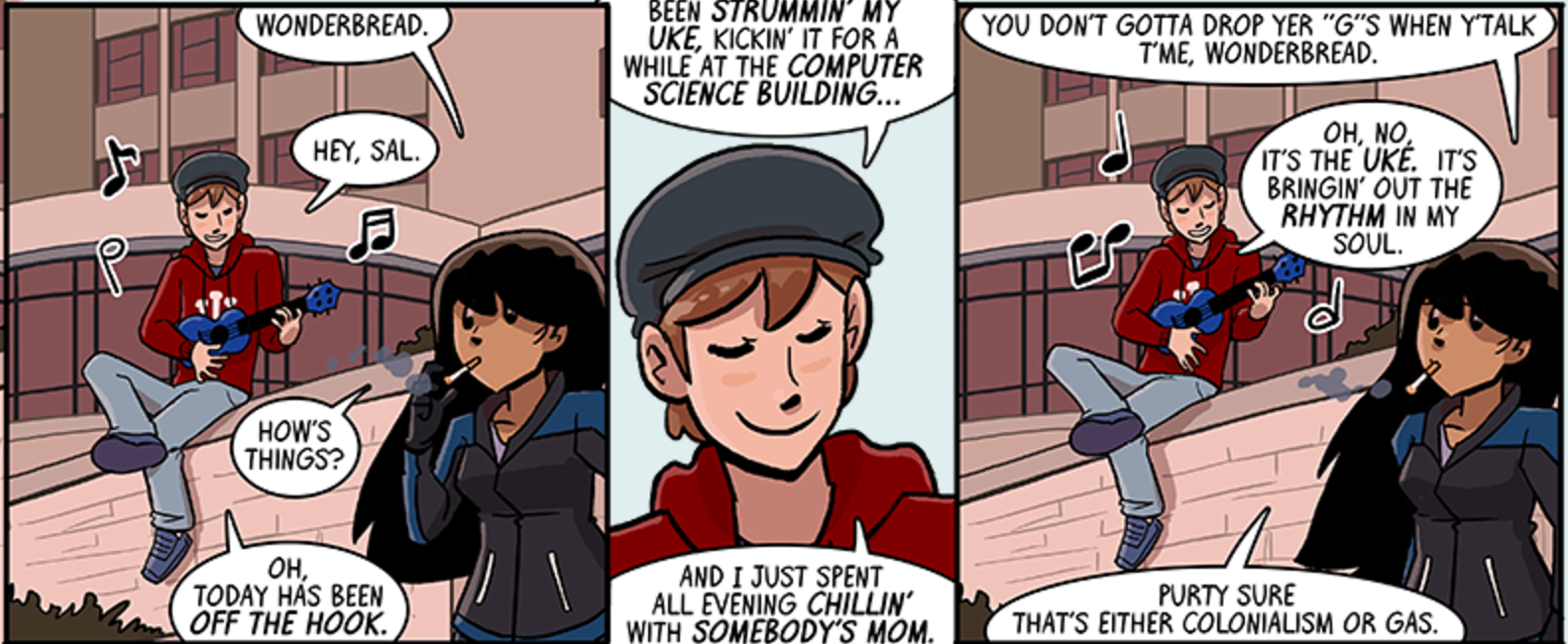This is a guest post by Kirby Conrod.
[Note from Mark Liberman: Kirby Conrod seriously misinterprets (and/or misrepresents) the post they attack, and makes false assertions about its author's opinions and practices. Eric Bakovic should have recognized this, and it was wrong for him to have posted the piece rather than trying to remedy the misunderstandings privately. See "Courtesy and personal pronoun choice", 12/6/2017, and "Linguists and change", 12/15/2017, for an attempt to balance the scales.]
I'm sorry to see that the venerable Geoff Pullum is so desperately behind the times. I don't mean to be snarky, I genuinely am sad about it. It's not just a matter of being un-hip to the cool new language change in progress (singular "they" is making inroads syntactically in the types of antecedents speakers will use it with), but rather a methodological and disciplinary unhipness that really makes me feel bad.
First, let me address the rudeness: if a senior colleague of mine pulled this kind of self-conscious "he is–sorry, they are" on me in a professional setting, I'd file a complaint. If they did it in a casual setting, I'd have a nasty word for them. That's the kind of snide, intentional misgendering that I am not okay with. In writing, Pullum clearly has the ability to force a use of "they" even if he finds it distasteful. To do otherwise is profoundly disrespectful and borderline hostile, even as a supposedly self-effacing joke about his own grammar. It would've been easy to make the point of his difficulty in writing that sentence without using the wrong pronoun for anyone–and Pullum should seriously self-interrogate on why he thinks "he" would have been the alternative, anyways.
With that out of the way, I'll go into the linguistics first, then the methods.
Read the rest of this entry »

